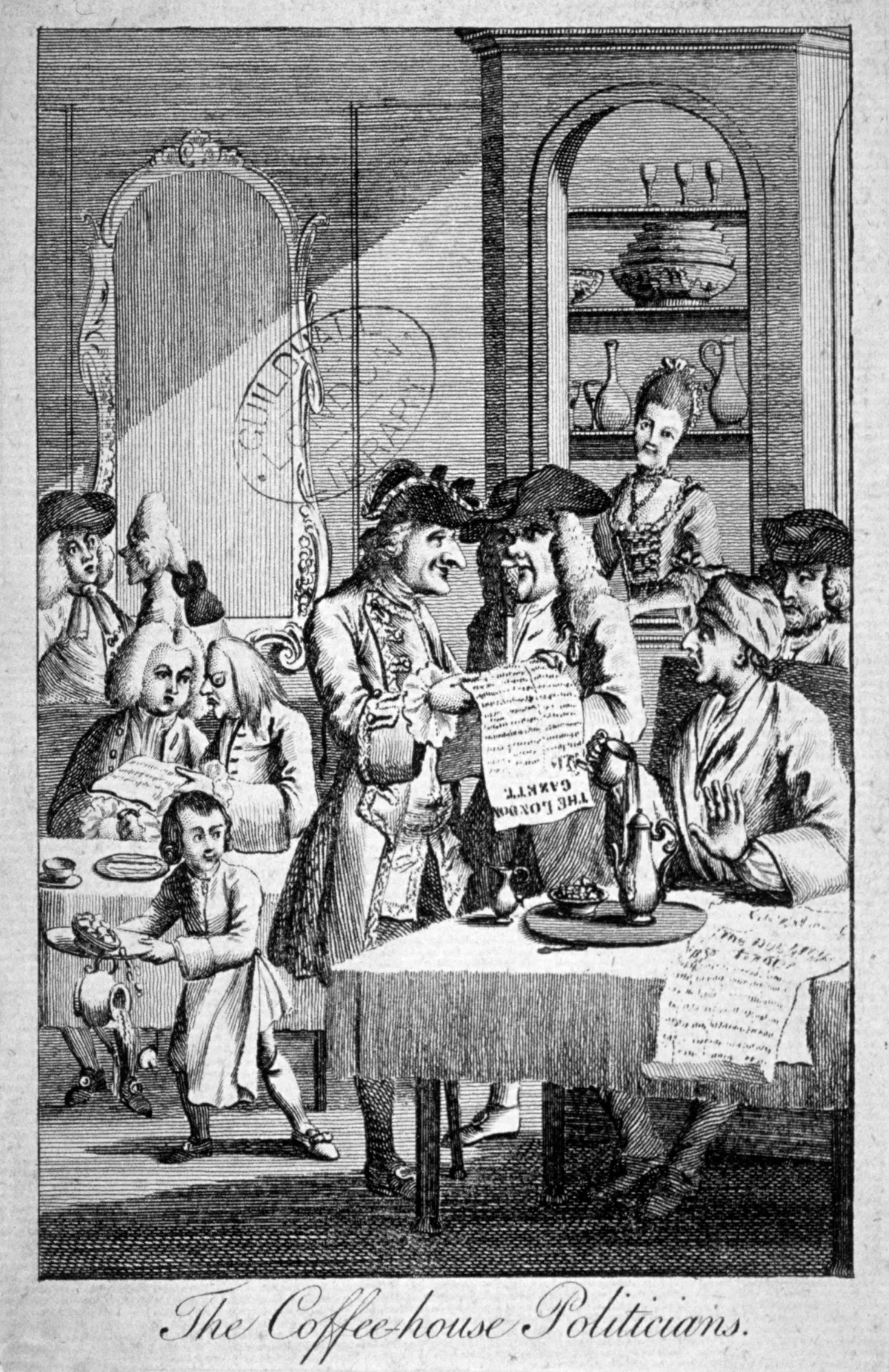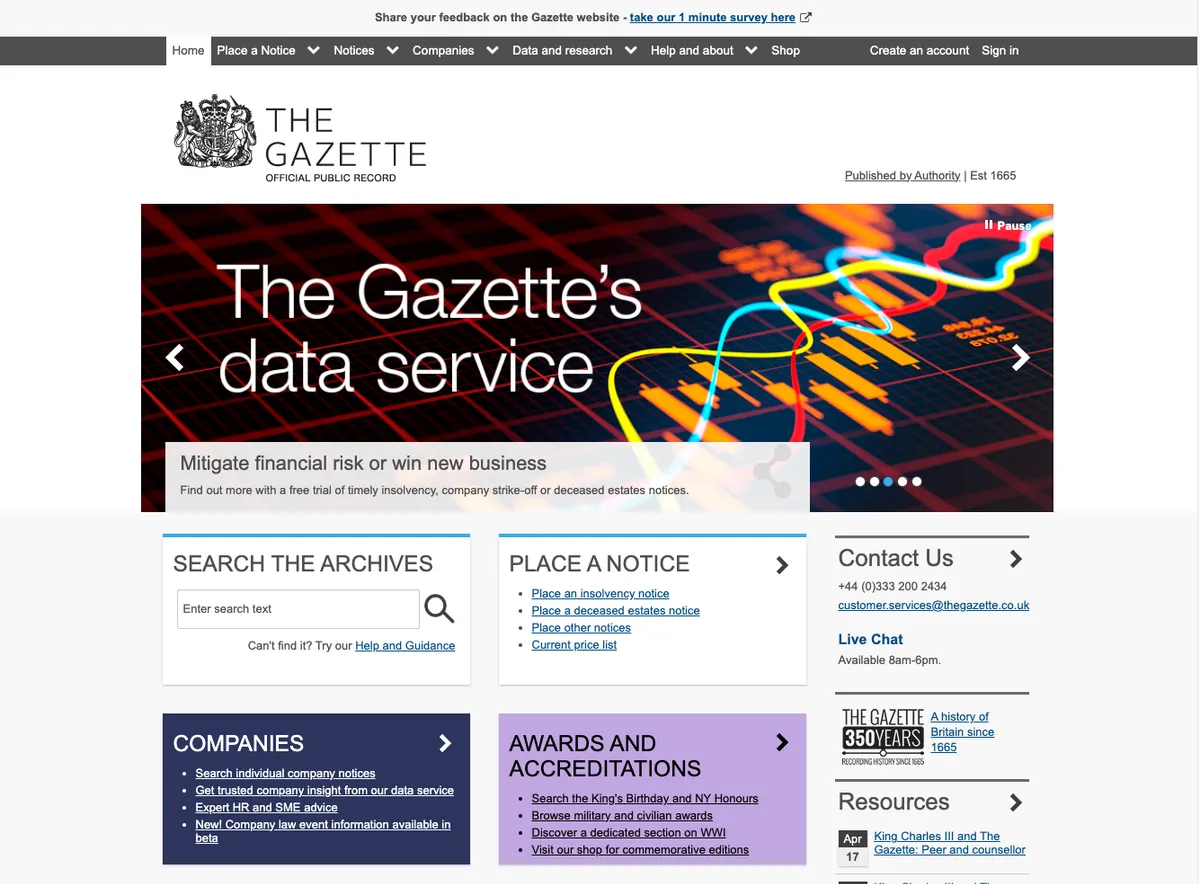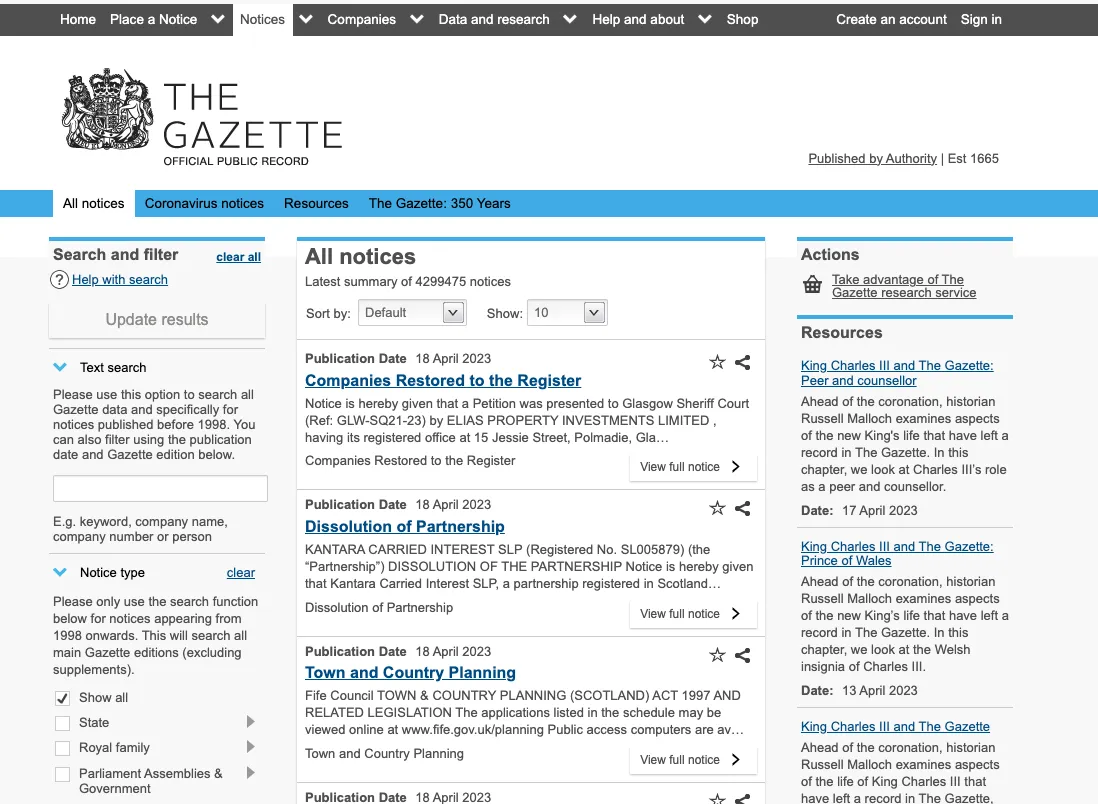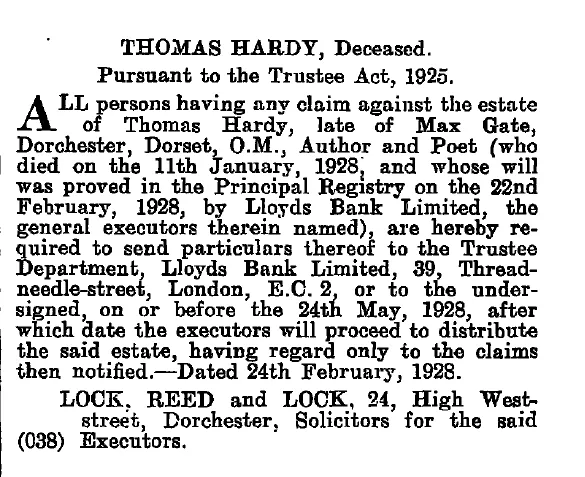What is The London Gazette?
The London Gazette is a British official newspaper of record managed by The National Archives (a non-ministerial government department) under a concessionary contract with The Stationery Office (TSO). Along with The Belfast Gazette and The Edinburgh Gazette, it records important matters from insolvency to military awards making it a useful tool for family historians. Luckily for researchers, The London Gazette (along with Belfast and Edinburgh) is available to view for free online.
The London Gazette was born out of the need for a newspaper for Charles II and his court who relocated temporarily to Oxford to escaped the Great Plague in the capital in 1665. Originally named The Oxford Gazette, the first edition was published on 7 November 1665. Samuel Pepys, the diarist, described the two-column newspaper as “very pretty, full of newes, and no folly in it”.
As the plague in the capital subsided, Charles and his court returned to London, The London Gazette was born, as issue 24. It became the only published newspaper, with all other titles being suppressed.

The Gazette is now formally the combination of the three publications: The London Gazette, The Belfast Gazette and The Edinburgh Gazette. The National Archives manages the publication of all three of the individual Gazette titles through TSO. The Gazette is the official public record, and notices printed in The Gazette are afforded legal standing.
Following the relaxation of publishing laws that allowed presses to be established outside London, The Edinburgh Gazette was first published in 1699. After starting and stopping several times in its first 100 years, the newspaper has been continuously running since 1793.
The Belfast Gazette was first published on 6 June 1921, and has been published weekly ever since. The Dublin Gazette, a forerunner to The Belfast Gazette, was first published in 1706 and, since 1922, has been published under the title Iris Oifigiúil.
How to search The London Gazette
You can now search and access information from each of the editions (London, Edinburgh and Belfast) via its website. All notices have now been migrated, going all the way back to the very first issue of The Oxford Gazette in 1665.

To start using the Gazette website you should first create an account. This is free, and offers additional functionality such as the ability to save your searches.
The notices on the website are divided into ‘Awards and Accreditation’, ‘Insolvency’ and ‘Wills and Probate’, but you can carry out a global search here (the website also has searchable sections on ‘Publications’ and ‘Resources’).

Enter your keyword, company name, company number, person etc in the text boxes in the column on the left-hand side of the page. You can search for exact words or phrases, or a combination of terms, and specify a particular edition if you wish – the default is to search all three simultaneously.
You can also suggest a distance from a particular location (input a place name or postcode) or choose a local authority, and supply a range for the date of publication.
There is also an option for specifying the type of notice more precisely, including ‘Royal family’, ‘Parliament Assemblies & Government’, ‘Church’ and ‘Honours and awards’, but sadly for family historians this only works for 1998 onwards.
When you’re ready, click the ‘Update results’ button and review the results listed in the column in the centre of the screen.
However, it’s important to bear in mind that various issues of the three Gazettes have been lost, so could not be digitised; they are listed here. The Gazette is working on a project to locate the missing editions and will be uploading more in time. In addition, such is the variable quality of print in The London Gazette’s surviving issues that the optical character recognition (OCR) can be extremely poor. So you should include as many criteria as possible when searching to identify all of the relevant entries.
You can find more advice on searching here.
What is published in The Gazette?

Today, over 450 types of notice are advertised in The Gazette. Below are the major categories useful to family historians.
- Insolvency - Since 1712 the Act to Relieve Insolvent Debtors has required that debtors’ details are gazetted. Bankruptcy is also gazetted, including notices to potential creditors.
- Civil service appointments - From the 1870s civil service appointments of all grades can be found, as can recipients of the Imperial Service Medal awarded to retiring civil servants who have completed 25 years’ service.
- Patents and company announcements - The 19th century saw an increase in the number of Gazette notices relating to patents and other legal announcements, such as company mergers or dissolved business partnerships.
- Wills and probate - In 1925, a Trustee Act encouraged trustees of estates to publish information inviting creditors of the deceased to make their claim. These name the deceased, their last address and the date of death. Deceased estates notices are still published to this day.
- Military awards and promotions - Usefully, the appointments and promotions of Army and Navy officers have also been recorded in The London Gazette from an early date, together with military and civil honours. The World Wars saw a surge in military awards and promotions, together with details of those who were ‘mentioned in dispatches’ from theatres of war for actions beyond the call of duty.
- Naturalisation notices and name changes - Before 1844, naturalisation, where foreign nationals become British citizens, could only be granted by an act of Parliament. After this date, and especially after 1886, you can search for naturalisation notices in The Gazette. Similarly people wishing to officially notify everyone of a change in name often used The Gazette.
- Irish land records - The Belfast Gazette lists tenancies to be purchased by the Land Commission in accordance with the Northern Ireland Land Act 1925. These show owners, tenants, addresses and rental values.
How can I buy a copy of The London Gazette?
The Gazette is usually only printed by special subscription now with most people accessing all the editions via the website. However it is possible to buy print copies of editions from the website, or purchase a copy. They are also available as personalised commemorative editions, as special keepsakes. Whether you want to frame the notice of an ancestor's military achievement or your family's ancient manorial title, you can order personalised copies for £75+VAT from The Gazette's online shop.
